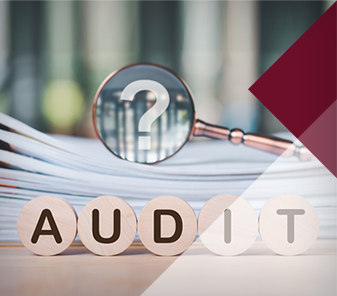 In the complex and ever-evolving landscape of financial compliance in South Africa, private companies often face questions around audit obligations. One of the most frequently asked is: “Do we need to be audited?” The answer depends on several factors, including the Public Interest Score (PIS) and the nature of the company’s ownership and control. In this article, we break down when an audit is required, what exemptions may apply, and how these rules affect owner-managed businesses in particular.
In the complex and ever-evolving landscape of financial compliance in South Africa, private companies often face questions around audit obligations. One of the most frequently asked is: “Do we need to be audited?” The answer depends on several factors, including the Public Interest Score (PIS) and the nature of the company’s ownership and control. In this article, we break down when an audit is required, what exemptions may apply, and how these rules affect owner-managed businesses in particular.
The Public Interest Score:
The Public Interest Score (PIS) is a scoring mechanism outlined in the Companies Act, 2008 (specifically Regulation 26 of the Companies Regulations, 2011), used to assess the level of public interest in a company. The PIS is calculated annually and takes into account:
- Number of employees (1 point per employee);
- Turnover (1 point per R1 million or part thereof);
- Third-party liabilities (1 point per R1 million or part thereof of debt owed to non-shareholders);
- Number of individuals with beneficial interests in securities (1 point per individual).
This score determines the extent of financial reporting obligations, including whether an audit or independent review is required.
When is an audit required?
A private company is required to be audited under the following circumstances:
- When the PIS is 350 or more – regardless of whether the company is owner-managed or not.
- When the PIS is between 100 and 349, and the financial statements are internally compiled (i.e., not by an independent external accountant).
- If the company holds assets in a fiduciary capacity for unrelated persons exceeding R5 million at any point during the year.
- If required by the Memorandum of Incorporation (MOI), shareholders, or in terms of any agreements, such as funding or joint ventures.
When is an audit not required?
Private companies may be exempt from an audit if:
- Their PIS is below 100, and the financial statements are internally compiled.
- Their PIS is between 100 and 349, and financial statements are compiled independently by a registered accounting professional.
- They are owner-managed, and there are no outside shareholders.
Special consideration: Owner-managed companies
Owner-managed companies, where all shareholders are also directors, may be exempt from audit requirements even with a PIS above 100, provided that the financial statements are independently compiled. This exemption recognizes the lower public interest risk due to aligned ownership and control.
However, if a company of this type has external funding, holds fiduciary assets, or if its MOI or agreements stipulate otherwise, the audit requirement may still apply.
Why it matters
Failing to comply with audit requirements can lead to penalties, reputational damage, and issues with financial institutions or investors. On the other hand, unnecessary audits increase costs. Understanding your company’s obligations can help streamline compliance and enhance governance.
Each private company’s circumstances are unique. Whether you’re a startup, a growing SME, or an established business, a clear understanding of your PIS and audit requirements is crucial.
If you’re unsure about your audit obligations or how to calculate your PIS, contact JC Laubscher (Director at Broodryk Kotzé Inc) for a personalised consultation (jc@bkaudit.co.za).

